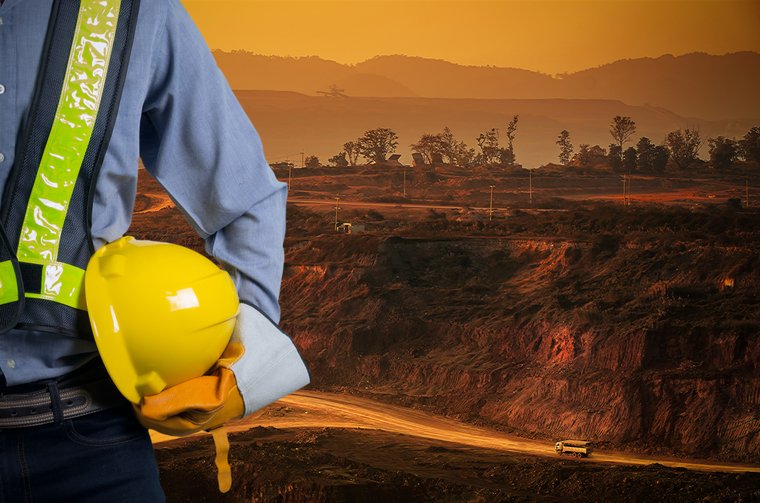Labor senator Raff Ciccone's statement at the weekend that "there is dignity in all work" is something mainstream Australians have always understood, and at last the political class appears to have cottoned on.
 Ciccone called for an overhaul of state and federal environmental laws to create more blue-collar jobs, and for limitations on legal injunctions — commonly referred to as "lawfare" — launched by activist green groups.
Ciccone called for an overhaul of state and federal environmental laws to create more blue-collar jobs, and for limitations on legal injunctions — commonly referred to as "lawfare" — launched by activist green groups.
My research estimated that the lawfare provision, section 487 of the Environment Protection and Biodiversity Conservation Act 1999, has put more than $65bn of investment at risk in Australia by holding up major projects such as dams, coalmines and roads in court for a total of 10,100 days since the year 2000.
Much of this investment is concentrated in job-starved regional communities and includes projects from the $16.5bn Adani coalmine in central Queensland to a $30m salmon farm in Tasmania.
Graeme Samuel's confirmation that there is evidence to support the existence of lawfare, which he spoke of in his joint press conference with Environment Minister Sussan Ley on Monday, reflects a growing consensus that jobs must be put ahead of the inflated concerns of noisy, inner-city green groups.
Even former Labor leader Bill Shorten criticised the government's "go-slow" approach to approving major projects, saying on Twitter yesterday that the "ones who miss out are Australians in need of a secure job".
The interim report of the independent review of the EPBC Act, authored by Samuel and released on Monday, also rejected adding "climate change" as a trigger for the EPBC Act.
The climate trigger, long a hobby horse of green activist groups, potentially would have required all greenhouse gas-emitting projects to be approved by the federal environment minister. This would have constituted the de facto nationalisation of approvals for Australia's resources, transport, agricultural and heavy industrial sectors and the destruction of hundreds of thousands of jobs.
Green groups also were expecting that the review would call for a federal government takeover of even more parts of environmental law. Instead, jobs again were put first and the report recommended more devolution and decentralisation of authority to state governments — a recommendation the government has already adopted.
Ley said the government would pursue two bold reforms: to accredit state governments to carry out environmental assessments and approvals on the federal government's behalf, and to explore market-based solutions to habitat rehabilitation.
The move to accredited state governments will substantially reduce duplication and sometimes contradictory regulatory requirements between the state and federal governments, and signals a shift away from Canberra's failed command-and-control approach to regulation.
Seeking market-based reforms to environmental conservations, meanwhile, has long been advocated by organisations such as the government's independent think tank, the Productivity Commission, to attain environmental outcomes with more flexibility and at less cost.
For example, the commission noted in its 2016 Regulation of Australian Agriculture report that "better use could be made of market-based approaches to native vegetation and biodiversity conservation at times".
The fact these two initiatives were announced on the same day as the release of an interim, rather than final, report indicates that the government is starting to understand how important job creation will be to Australia's recovery from the pandemic.
Between March and June, 815,000 jobs had been lost because of the COVID-19 social distancing regulations introduced by federal and state governments. And while the official unemployment rate is 7.4 per cent, the real rate is 11.7 per cent once those who have on net left the labour market since March and those working zero hours are added.
Young Australians have been affected disproportionably by the lockdown measures, with 355,000 15 to 24-year-olds not in full-time education and not working, the equivalent to 29.6 per cent. This is up from 22.3 per cent in March.
Getting Australians back into work will be the most important factor in economic and social recovery. Mass unemployment is not only an economic problem, it is also a humanitarian tragedy.
Work is the epicentre of a good and flourishing life. Those who work are more likely to own their own home, participate in their community and send their kids to good schools. They are also likely to have far superior physiological and psychological health outcomes, and are less likely to become dependent on drugs and alcohol, or to commit crimes and to be in jail.
Losing your job because of coronavirus is one thing. But missing out on the dignity of work because a small group of inner-city, university-credentialed elitists look down on blue-collar jobs and manual labour is not who most Australians are.
Parts of the interim report raise concerns. The suggestion that project actions "must deliver a net gain for critically endangered species habitat and ecological community distribution" is vague and inviting itself to be used as a mechanism for throwing spanners in the works, while the proposed adoption of federal government-enforced national environmental standards could result in a bureaucratic and lawyer-infested investment quagmire. These issues can be ironed out.
By putting jobs for mainstream Australians ahead of the boutique concerns of noisy activists, the government has a unique opportunity to develop a much needed pro-worker and pro-jobs economic recovery strategy.
No comments:
Post a Comment